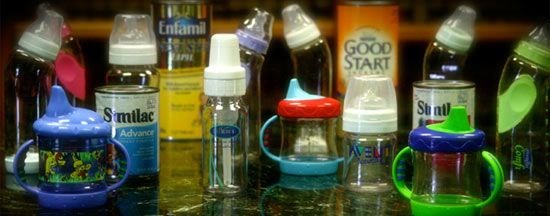BPA Gets Euro Authority's 'Green Light' Following FDA Ruling
Last December, FDA confirmed that BPA is safe as currently used and the EFSA has now ruled similarly.
Last week, the European Food Safety Authority (EFSA) ruled that Bisphenpol A (BPA), used in a wide array of applications from the lining of cans to plastic packaging, poses no threat to human health. This action follows the U.S. FDA’s confirmation in December that BPA is safe as currently used.
Dr. Joseph Perrone, chief scientific officer of the Center for Accountability in Science, who has written extensively about BPA’s safety, points out that many of the studies linking BPA to various health ailments are significantly flawed. One such study, published by the prestigious American Heart Association, claimed that drinking from cans—and thereby ingesting Bisphenol A used in the lining, could raise your blood pressure and increase your risk for heart disease. The actual data, however, does not support the author’s sweeping conclusions. When one looks at the data, participants’ blood pressure didn’t actually rise after drinking from a can. Here’s how it went:
In this small study--only 70 participants, all over age 60, participants were given either two cans of soy milk, one can and one glass bottle of soy milk, or two glass bottles of soy milk. Blood pressure was measured both before and after consumption, and levels of BPA were measured after consumption.
Across-the-board, blood pressure decreased after drinking soy milk. It decreased by nearly identical margin when participants drank two bottles of soy milk or one can and one bottle of soy milk—despite much higher levels of BPA after drinking a can. After drinking two cans, blood pressure still decreased, but by a slightly lower amount. According to Perrone, at most, one could say that this small study found that drinking soy milk out of a can might temporarily lower your blood pressure slightly less than drinking it out of a glass bottle. It certainly does not show that drinking any beverage from a can might increase your risk of cardiovascular disease.

Related Content
-
Medical Manufacturer Innovates with Additive Manufacturing and Extrusion Technology Hubs
Spectrum Plastics Group offers customers two technology hubs — one for extrusion, the other for additive manufacturing — to help bring ground-breaking products to market faster.
-
Medical Molder, Moldmaker Embraces Continuous Improvement
True to the adjective in its name, Dynamic Group has been characterized by constant change, activity and progress over its nearly five decades as a medical molder and moldmaker.
-
Industrial Resin Recycling Diversifies by Looking Beyond Automotive
Recycler equips for new business in medical, housewares and carpeting.
















